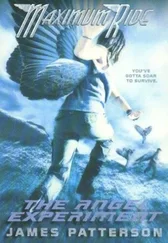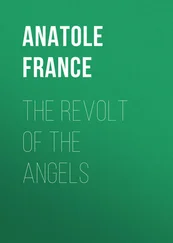Yukio Mishima - The Decay Of The Angel
Здесь есть возможность читать онлайн «Yukio Mishima - The Decay Of The Angel» весь текст электронной книги совершенно бесплатно (целиком полную версию без сокращений). В некоторых случаях можно слушать аудио, скачать через торрент в формате fb2 и присутствует краткое содержание. Год выпуска: 2010, Издательство: CCV Digital, Жанр: Старинная литература, на английском языке. Описание произведения, (предисловие) а так же отзывы посетителей доступны на портале библиотеки ЛибКат.
- Название:The Decay Of The Angel
- Автор:
- Издательство:CCV Digital
- Жанр:
- Год:2010
- ISBN:нет данных
- Рейтинг книги:5 / 5. Голосов: 1
-
Избранное:Добавить в избранное
- Отзывы:
-
Ваша оценка:
- 100
- 1
- 2
- 3
- 4
- 5
The Decay Of The Angel: краткое содержание, описание и аннотация
Предлагаем к чтению аннотацию, описание, краткое содержание или предисловие (зависит от того, что написал сам автор книги «The Decay Of The Angel»). Если вы не нашли необходимую информацию о книге — напишите в комментариях, мы постараемся отыскать её.
The Decay Of The Angel — читать онлайн бесплатно полную книгу (весь текст) целиком
Ниже представлен текст книги, разбитый по страницам. Система сохранения места последней прочитанной страницы, позволяет с удобством читать онлайн бесплатно книгу «The Decay Of The Angel», без необходимости каждый раз заново искать на чём Вы остановились. Поставьте закладку, и сможете в любой момент перейти на страницу, на которой закончили чтение.
Интервал:
Закладка:
The lawyer consulted a psychiatrist with whom he was on good terms. Behind Honda’s much-publicized misconduct the psychiatrist drew a picture of senile unease. Two ailments emerged, “vicarious sexual desire,” an obsession like a fire reflected in a mirror, not to be made light of, and incontinence resulting from senility. Everything else could be left to the legal system, said the lawyer. He added that it would be good if Honda were to begin spending his money unwisely, in such a way as to give rise to fears that the estate might be endangered, but unfortunately there were no such tendencies. Tōru was in any case worried less about money than about power.
27
 LATE IN NOVEMBER a splendid engraved invitation, in English, came to Tōru from Keiko.
LATE IN NOVEMBER a splendid engraved invitation, in English, came to Tōru from Keiko.
There was a letter with it.
Dear Tōru,
I have been very bad about keeping in touch.
Everyone seems to have made arrangements for Christmas Eve, and so I am having a premature Christmas party on the twentieth. I have until now always invited your father, but I have had to conclude that because of his advanced years an invitation this year would be a disservice, and I am inviting you instead. I think we should keep the matter secret from him. That is why I have addressed the invitation to you.
I fear that to say so will be to reveal too much of myself, but the truth is that since the September affair I have found it difficult to invite your father, out of deference to the other guests. I know it will seem to you that I am a bad friend, but in our world it is the final stroke when the private becomes public. I must be very careful.
My real reason for inviting you is that through you I want to continue relations with the Honda family. I will be delighted therefore if you can accept this invitation.
And so do please honor me by coming alone. Among the other guests will be several ambassadors and their wives and daughters, the Foreign Minister and his wife, the president of the Federation of Economic Organizations and his wife, and numbers of other pretty ladies as well. You will see from the invitation that it is to be black tie. It would be a great help if you could let me know soon whether or not you will be able to attend.
Yours sincerely,
Keiko Hisamatsu
One could if one chose see the letter as a rude and haughty one, but Tōru smiled at the thought of Keiko’s confusion after the September incident. He could read between the lines. Keiko, so proud of her immorality, retreated trembling behind bolted gates in the face of scandal.
But something in the letter aroused Tōru’s delicate guard. That Keiko, so staunch an ally of his father, should be inviting him—might it not be to make sport of him? Might her intention in introducing him to all those pretentious guests as the son of Shigekuni Honda not be to excite them and so to embarrass not Honda but Tōru himself? That was it. There could be little doubt.
Tōru’s combative instincts were aroused. He would go to the party as the son of the notorious Honda. No one of course would touch upon the matter. But he would shine as a son unapologetic for a notorious father.
The sensitive spirit would move silently among them, a faint, beautiful, somehow sad smile on its lips, the skeletons of family scandal (such beastly little affairs), no doing of its own, ranged beside it. Tōru could see all the pale poetry. The contempt and interference of the old would push the girls irresistibly in Tōru’s direction. Keiko’s calculations would prove faulty.
Not owning a tuxedo, Tōru had to put in a quick order for one. He slipped into it when, on the nineteenth, it was delivered, and went over to show Kinué.
“You look very good in it. Lovely. I know how much you wanted to take me dancing in it. What a pity that I should always be so ill. What a real pity. And that’s why you’ve come to show me. How very kind of you. That’s why I like you.”
It was obesity that had rendered Kinué immobile. She was in the best of health and she got no exercise, and in these six months she had fattened beyond recognition. The heaviness and immobility gave more immediacy to her illnesses. She was constantly taking liver pills, and she would gaze from the chaise longue through the trees at the blue sky, so soon to be lost. Her perpetual refrain was that she was not long for this world, and she was a great trial for the maids, whom Tōru had told that they were in no circumstances to laugh.
What Tōru admired was the cunning with which, offered a set of conditions, she would outflank them and raise defenses which would give her the advantage and reinforce her beauty and perhaps add a touch of the tragic to it. She had immediately sensed that he did not mean to take her out. So she had put her illness to the uses of the situation. Tōru thought he had things to learn from this so stubbornly guarded pride. She had become his teacher.
“Turn around. Oh, it’s very nicely cut. The shoulder line is beautiful. Everything looks good on you. Just like me. Well, you must forget all about me tomorrow evening and enjoy yourself. But when you’re enjoying yourself most, think for just a moment of the sick girl you’ve left at home. But just a moment. You need a flower in your lapel. If only I were strong enough I’d go and pick it for you myself. Maid, please. The winter rose, the red one, if you will.”
She had the maid pick a little crimson rosebud just coming into bloom, and herself put it in his buttonhole.
“There.” With the most languorous, evanescent of fingers, she pushed the stem through. She tapped the glossy silk of the lapel. “Go out into the garden and let me have another look at you.”
The corpulent figure seemed to be breathing its last.
At the appointed time, seven in the evening, Tōru pulled up in his Mustang, as directed by the map, at a wide, white-graveled drive in Azabu. There were no other cars yet.
Tōru was astonished at how old-fashioned Keiko’s mansion was. The lamps under the trees set off a circular Regency front. There was something rather ghostly about the place, the effect intensified by red ivy blackened by the night.
Tōru was ushered in by a white-gloved butler past the circular domed hallway to a parlor in the rich Momoyama style, and there seen to a Louis XV chair. He was rather ashamed to find himself the first guest. The house was brilliantly lighted but still. There was a large Christmas tree in one corner. It seemed out of place. Left by himself when the butler had taken his order for a drink, he leaned against the old-fashioned paned window and looked out through the trees at the lights of the city and a sky turned purplish by neon.
A door opened and Keiko came in.
The brilliant formal dress of the septuagenarian before him quite robbed him of speech. Sleeves trailing to the hem of the skirt, her evening dress was beaded over its whole surface. The shifting colors and patterns of the beads from the neck down over the skirt were such as to dazzle the eye. At the bosom, the wings of a peacock in green on a gold ground, waves of purple over the sleeves, a continuous wine-colored pattern down over the waist, purple waves and gold clouds on the skirt, the several boundaries marked in gold. The white of the organdy ground was set off by a threefold Western pattern in silver net. From the skirt emerged the toe of a purple satin slipper, and at the always proud neck was an emerald Georgette stole, draped down over the shoulders and reaching to the floor. Below her hair, cut shorter and closer than usual, hung gold earrings. Her face had the frozen look of one that had more than once been ministered to by plastic surgeons, but the parts that still remained under her control seemed to assert themselves all the more haughtily. The awesome eyes, the grand nose. The lips, like red-black bits of apple beginning to rot, tortured into a yet more shining red.
Читать дальшеИнтервал:
Закладка:
Похожие книги на «The Decay Of The Angel»
Представляем Вашему вниманию похожие книги на «The Decay Of The Angel» списком для выбора. Мы отобрали схожую по названию и смыслу литературу в надежде предоставить читателям больше вариантов отыскать новые, интересные, ещё непрочитанные произведения.
Обсуждение, отзывы о книге «The Decay Of The Angel» и просто собственные мнения читателей. Оставьте ваши комментарии, напишите, что Вы думаете о произведении, его смысле или главных героях. Укажите что конкретно понравилось, а что нет, и почему Вы так считаете.











